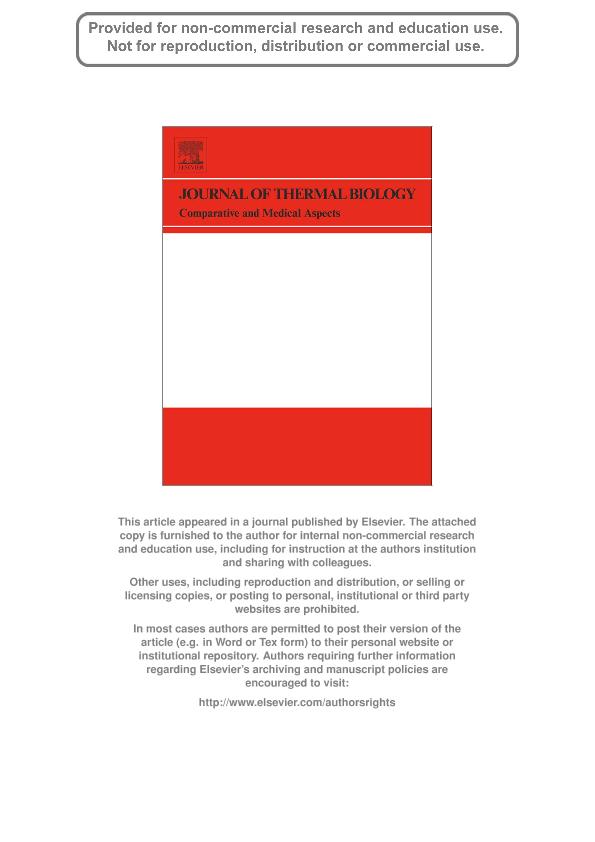Artículo
Effect of low-quality diet on torpor frequency and depth in the pichi Zaedyus pichiy (Xenarthra, Dasypodidae), a South American armadillo
Fecha de publicación:
03/2013
Editorial:
Pergamon-Elsevier Science Ltd
Revista:
Journal of Thermal Biology
ISSN:
0306-4565
Idioma:
Inglés
Tipo de recurso:
Artículo publicado
Clasificación temática:
Resumen
Daily torpor is a physiological adaptation that allows mammals to cope with energetic challenges associated with unpredictable periods of food shortage. We experimentally tested whether food quality influences torpor frequency and depth in the pichi (Zaedyus pichiy), a small, opportunistically omnivorous armadillo endemic to arid and semi-arid habitats of southern South America. We recorded body temperature (Tsc) changes in 10 semi-captive, adult female pichis using dataloggers implanted subcutaneously during periods of 21 days. All individuals entered spontaneous daily torpor, but those receiving a low-quality diet had significantly lower daily mean and minimum Tsc, spent more time at Tsc below their individual lower limit of normothermia, and had a higher Heterothermy Index than controls. Five individuals entered prolonged torpor bouts lasting more than 24 hours, two of them repeatedly. Nine out of ten prolonged torpor bouts occurred in individuals feeding on a low-quality diet, suggesting that pichis are able to enter prolonged periods of torpor during severe environmental stress. In combination with their ability to hibernate and to respond to a reduced insect abundance by ingesting other food items, this physiological adaptation allows pichis to better cope with food shortages and a more extreme climate than other armadillos. It may explain why Z. pichiy naturally occurs farther south than any other armadillo species.
Palabras clave:
ARGENTINA
,
CINGULATA
,
FOOD QUALITY
,
HYPOMETABOLISM
,
THERMOREGULATION
,
TORPOR
,
XENARTHRA
Archivos asociados
Licencia
Identificadores
Colecciones
Articulos(IMBECU)
Articulos de INST. DE MEDICINA Y BIO. EXP. DE CUYO
Articulos de INST. DE MEDICINA Y BIO. EXP. DE CUYO
Citación
Superina, Mariella; Jahn, Graciela Alma; Effect of low-quality diet on torpor frequency and depth in the pichi Zaedyus pichiy (Xenarthra, Dasypodidae), a South American armadillo; Pergamon-Elsevier Science Ltd; Journal of Thermal Biology; 38; 5; 3-2013; 280-285
Compartir
Altmétricas




